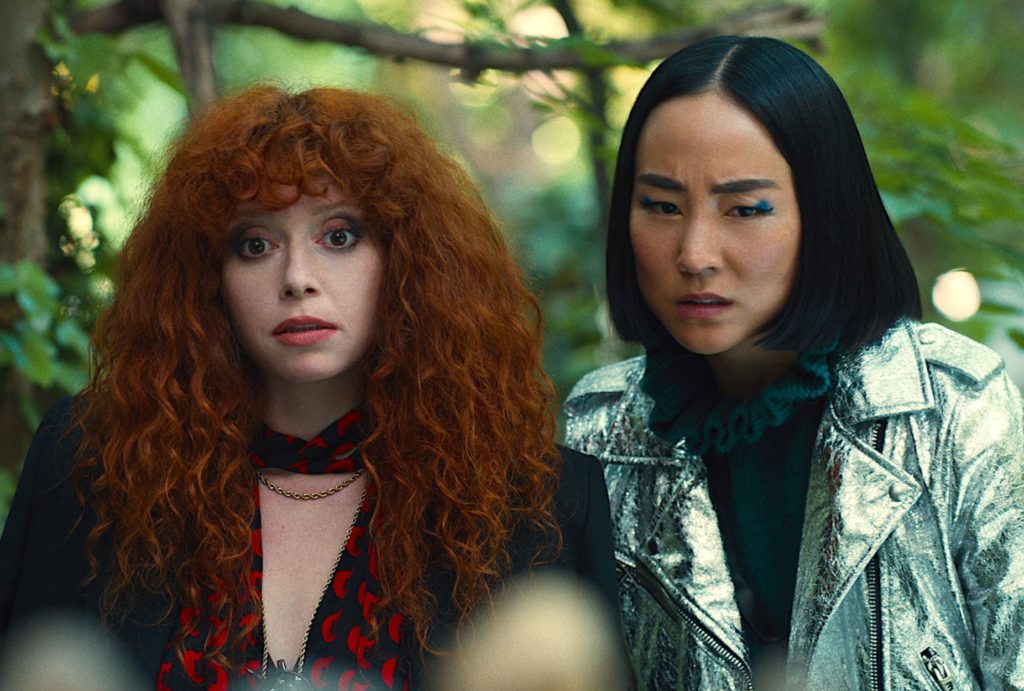One-season tv series seem the way to go these days. Not only is there an influx of limited series right now, but more often than not, long tv shows peter out or get canceled, especially if they are out on Netflix. Russian Doll was one of those shows that captured lightning in a bottle with its first season, much like True Detective. So when the second season arrived three years later, there was a concern that it might misfire, just like True Detective. Thankfully, Russian Doll season two isn’t nearly as bad as it could have been. It’s actually very good. Whether it’s great, however, is debatable.
Four years after escaping her time-loop, Nadia (Natasha Lyonne) finds herself in a new time-caper when she uses the 6th train in the NYC subway to travel back to the eighties and ends up inhabiting her mother’s body. She tries to use this opportunity to ‘fix’ her life by making sure prized family heirlooms- a set of golden coins- aren’t lost, but despite every attempt, things can only turn out a certain way. Alan (Charlie Barnett) also tries the 6th train and ends up traveling to sixties Berlin in the body of his grandmother, and he too learns a similar lesson.

Russian Doll season two wisely chooses a different temporal anomaly, although this one doesn’t have the urgency of the time loop. A big part of what makes this season so enjoyable, as with the first one, is how comfortable Nadia feels within this timey-wimey chaos. Natasha Lyonne’s portrayal of the nonplussed, wry Nadia never crosses the line to becoming too quippy and self-assured. Others, such as Chloë Sevigny, who portrays Nadia’s mother Nora, Sharlto Copley, who plays Nora’s crooked lover, and Annie Murphy, who plays a younger version of Nadias’ ‘aunt’ Ruth, also make their mark despite their limited screentime.
Although the show doesn’t lay it on thick, this season is about generational trauma, and how those experiences shape mothers and their children.
Unfortunately, the show feels looser and less carefully crafted than before.
The final episode, where time is breaking down as Nadia desperately tries to make it to Ruth’s hospital bed before she dies, is a fitting conclusion, and at times even emotionally affecting, but it falls just short of the resonance of the season one finale.
Apparently, the creators of Russian Doll pitched it as a three-season show. At this point, I don’t want Nadia to go through even more trauma, but this season has proven that a new Russian Doll season may not be entirely pointless.